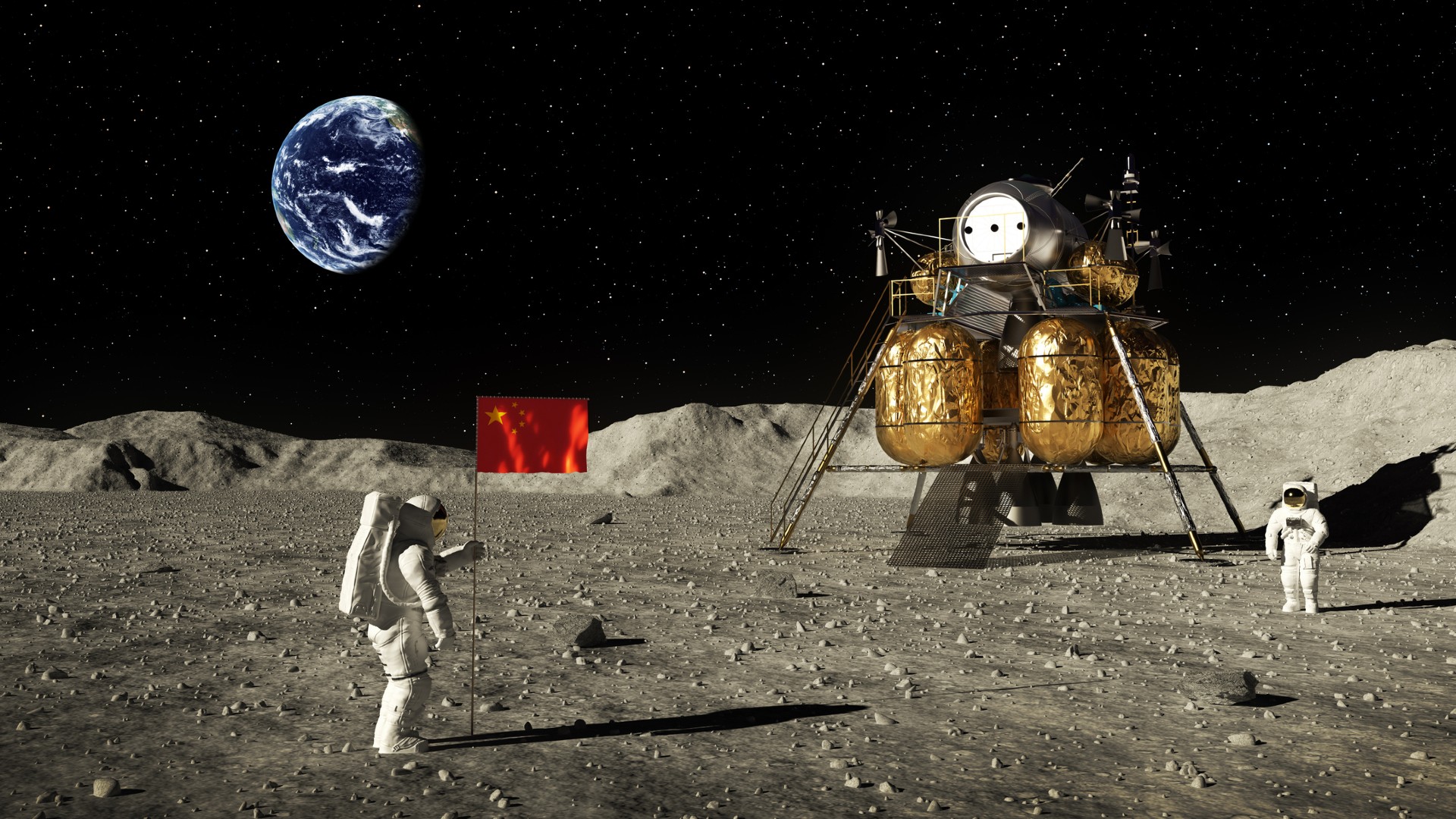The race back to the moon: What if China lands its astronauts first?
"The country that lands on the moon first will shape the rules of engagement in space for decades to come."

Both the United States and China are working to put their astronauts on the moon in the next few years, with NASA's acting administrator claiming that America will win the "race." But what happens if China prevails?
NASA plans to launch its Artemis 2 mission to send astronauts around the moon and back early next year, and follow this up with the Artemis 3 crewed moon landing in 2027. China, meanwhile, has committed to making its first crewed lunar landing before 2030, and has recently announced progress on the hardware it needs, including the Long March 10 rocket and Lanyue lunar lander.
Those timelines appear to put the U.S. in the lead, but experts told a Senate Commerce Committee hearing last week, titled "There's a Bad Moon on the Rise," that America is in real danger of losing the moon race to China. Among the reasons they cited was the pace of development of SpaceX's Starship, which will serve as the Artemis 3 lunar lander, and the need for multiple refueling missions to get Starship to the moon.
"Unless something changes, it is highly unlikely the United States will beat China's projected timeline," former NASA Administrator Jim Bridenstine told the hearing.
If China does land first, there could be profound repercussions for the United States, according to Mike Gold, president of civil and international space at Redwire and a key figure in formulating the Artemis Accords.
"Let me put you this way: China lands on the moon. The next day, we see tremendous benefits [for them] politically, where our eyes turn to them, not only for space exploration, but for national security agreements, for trade agreements," Gold said in response to a question on the importance of landing first.
"The meeting that's occurring now between China, India and Russia that you're seeing today — if China lands on the moon first, that will deepen and strengthen those economic ties," Gold added.
Breaking space news, the latest updates on rocket launches, skywatching events and more!
"China is very good at leveraging space to drive the dynamics that Jim Bridenstine and the general [Lt. Gen. John Shaw] are talking about," he continued. "If they get there first, we will see a global realignment that will impact our economy, our tax base, our ability to innovate and our national security in terms of diplomacy and geopolitics that will affect security and many other aspects of our daily lives."
The warning is stark enough in terms of the United States and its leadership in space and on Earth. Beyond a showcase demonstration of capabilities, however, a more lasting impact may be made by the country or countries that establish a sustained lunar presence.
Whether or not the prize for landing astronauts on the moon for the first time in the 21st century is a favorable shift in geopolitical dynamics, there may be tangible goals within reach on the moon.
Gold, in his submitted testimony for the hearing, stated the following: "If America isn't the first to return to the moon, we risk ceding the best ice reserves to China," adding that this resource can be split into oxygen and hydrogen for fuel, or used for drinkable water.
However, the indications are that China is working first toward a crewed mid-latitude lunar landing, rather than targeting the lunar south pole where water ice is believed to be relatively abundant. At the same time, China's robotic Chang'e 7 and Chang'e 8 missions, launching in 2026 and 2028-2029 respectively, will aim to land at key spots near the lunar south pole and prospect for volatiles such as water ice and test out the ability to print bricks that would enable the construction of lunar habitats.
Allen Cutler, president and CEO of the Coalition for Deep Space Exploration, noted in his testimony that whoever emerges as the leader in lunar exploration will set the rules for the rest going forward in terms of the use of space resources, lunar governance and the formation of international partnerships.
"The country that lands on the moon first will shape the rules of engagement in space for decades to come," Cutler said. "That leadership must come from the United States."
How China's moon plans and NASA's Artemis program progress going forward is going to be one of the most keenly followed and possibly consequential space events for decades, potentially reshaping dynamics on the Earth and moon.

Andrew is a freelance space journalist with a focus on reporting on China's rapidly growing space sector. He began writing for Space.com in 2019 and writes for SpaceNews, IEEE Spectrum, National Geographic, Sky & Telescope, New Scientist and others. Andrew first caught the space bug when, as a youngster, he saw Voyager images of other worlds in our solar system for the first time. Away from space, Andrew enjoys trail running in the forests of Finland. You can follow him on Twitter @AJ_FI.
You must confirm your public display name before commenting
Please logout and then login again, you will then be prompted to enter your display name.
